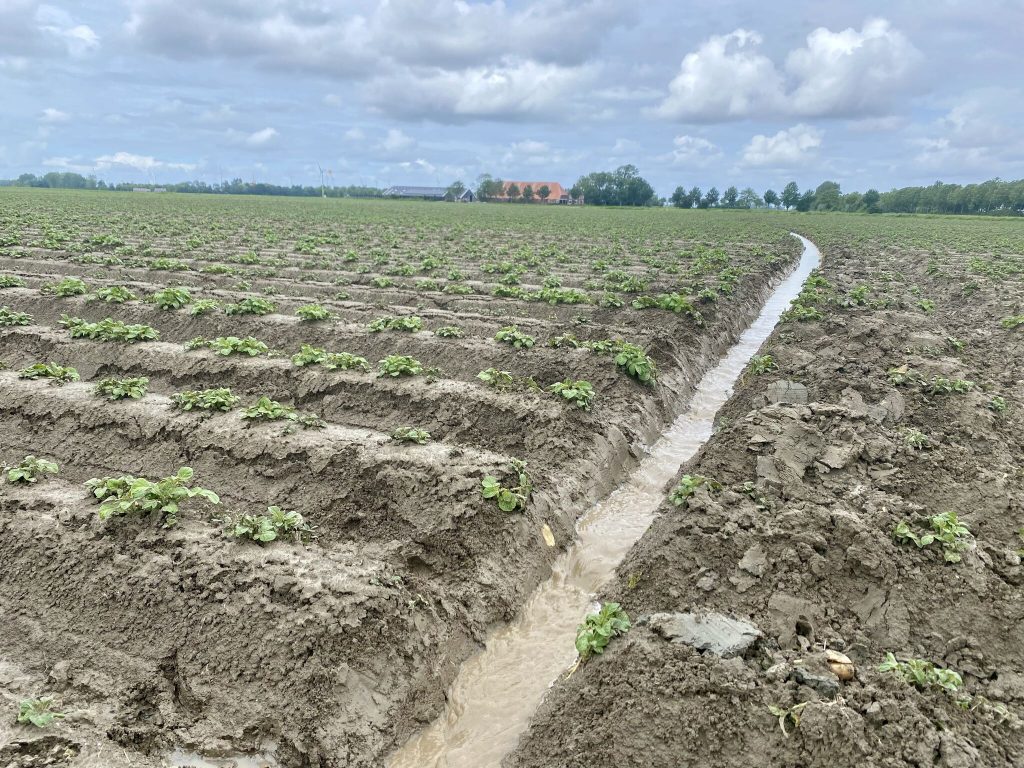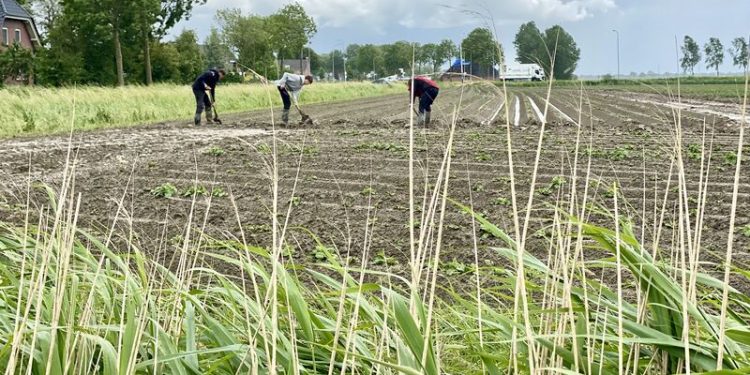Navigating Climate Change Impacts on Potato Agriculture
Recent challenges in potato farming underscore the increasing unpredictability of weather patterns, affecting growers worldwide. Farmers, agronomists, and agricultural stakeholders are grappling with heightened climate extremes, from heatwaves and droughts to cold snaps and heavy rainfall. These fluctuations pose significant challenges, impacting crop management and necessitating robust risk management strategies.
Cor Biemond, a seasoned farmer, highlights the arduous task of managing water drainage amidst varying weather conditions. “Today, we spent the entire day with a team of five, draining water from multiple fields to mitigate damage,” Biemond recounts. The physical demands of such tasks are compounded by the mental strain of navigating increasingly erratic weather patterns exacerbated by climate change.
Investments in effective drainage systems and soil structure management are crucial but insufficient in mitigating the risks posed by extreme weather events. As farmers confront these challenges, the importance of proactive risk management strategies becomes paramount for safeguarding crop yields and livelihoods.
Despite these obstacles, the potato farming community remains resilient, continuously adapting cultivation practices and embracing innovative solutions to enhance climate resilience. Sustainable farming practices, enhanced crop varieties, and technological advancements in irrigation and soil management are pivotal in mitigating climate risks and ensuring sustainable agricultural productivity.
Looking forward, effective risk management will play a pivotal role in shaping the future of potato farming amidst evolving climate dynamics. As stakeholders collaborate and innovate, the focus remains on fostering resilience and sustainability in potato agriculture to secure a stable future for growers worldwide.








